‘The Long Goodbye’ by Street Nights | Interview | Album Premiere
Exclusive album premiere of ‘The Long Goodbye’ by Street Nights, the solo project of Jake Morris, longtime drummer for Stephen Malkmus and The Jicks.
With ‘The Long Goodbye,’ he dives into themes of vulnerability and growth amid societal chaos, all wrapped in a shimmering indie pop haze. His dreamy vocals guide us through a colorful world of soaring harmonies and infectious rhythms, where jazzy solos meander through lush brass jungles. It’s like a dance party on a sinking ship—reminding us we’re not alone in this mess.
After self-releasing ‘Human Condition’ in 2020, Morris found a fresh wave of inspiration, leading him to work with producer Cameron Spies. The initial ideas came together in various places, but a stay at his wife’s grandmother’s house in Sint Maarten helped solidify the vibe. In Portland’s Trash Treasury Recording, Morris and Spies meticulously mapped out the songs, transforming them into a polished yet wild collaboration with an all-star cast of friends. Street Nights proves that even amid chaos, there’s beauty to be found.
As Jake says: “Mansplainers, grifters, sorority girls, complacent complicit GenXers. Divorced dads, with 6 pack abs, unleashed on the apps. These are just some of the characters navigating ‘The Long Goodbye’ as best they can through 11 songs. Self reflection comes easy to some, others are delusional. But like it or not they and we are all in it together. Each song and character offers a different coping mechanism to feeling powerless in inevitable environmental collapse. But it’s not as heavy as it sounds. Sometimes the only way to move forward is to get down.”
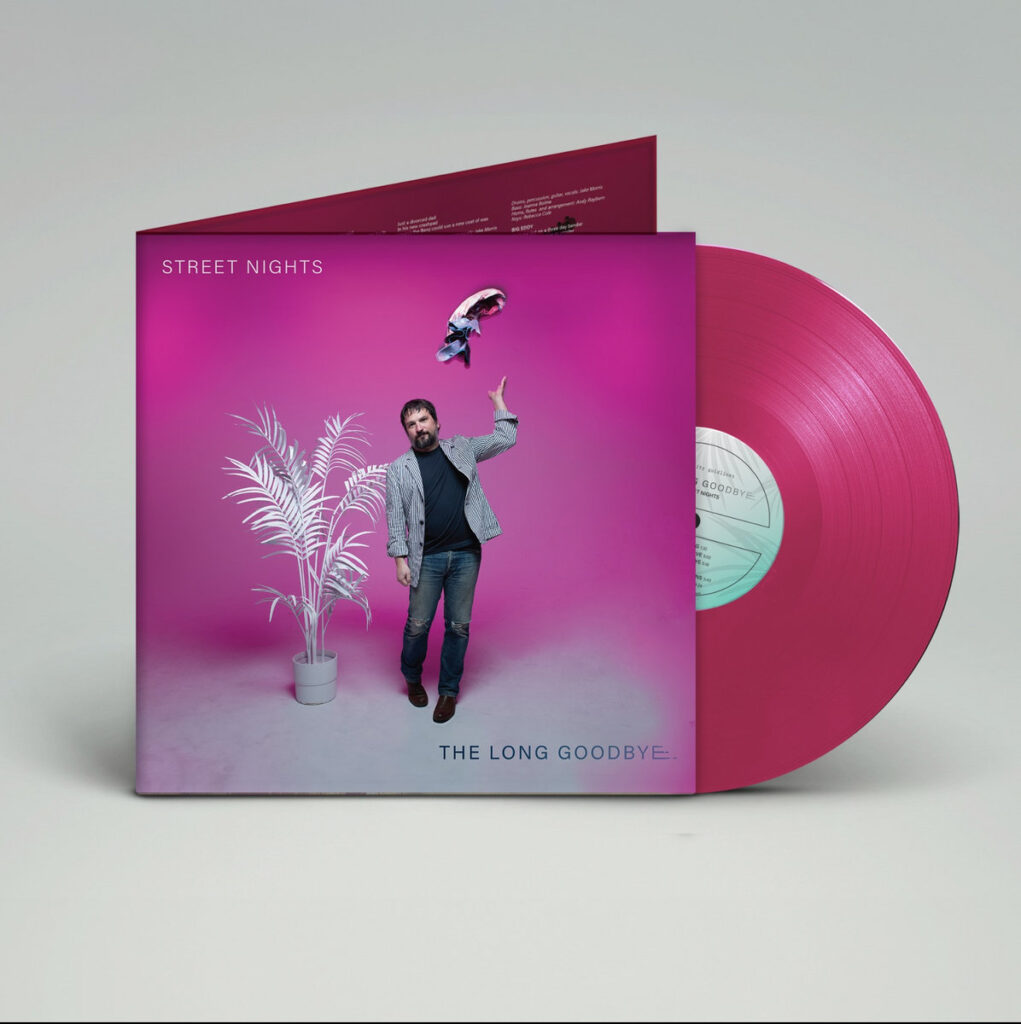
“Music brought me here through blind faith.”
It’s great to have you. What was the inspiration behind ‘The Long Goodbye’? You’ve mentioned themes of vulnerability, growth, and the looming presence of societal collapse—how did these concepts shape the direction of the songs?
Jake Morris: Thanks for having me! Well, I think those themes are just inevitable in day-to-day life, and if you’re wanting to be honest with your work, you “write what you know.” Everyone is trying to find their way of coping, and I feel really grateful to have music. To be able to create it and have a community with which to collaborate is something that I really don’t take for granted. Having that to lean into, to focus on, and to work through things is really powerful, helpful, and cathartic in many ways. It can be a place of strength when you can’t seem to make sense of things otherwise. Ultimately, the songs were just trying to do right by that support system of collaborators.
Can you take us through the writing process? You’ve mentioned that some ideas were “whispered into a phone in public places,” and others came together in Sint Maarten. How did those settings impact the music and lyrics?
Most songs on the record started in the voice memos of my phone. Coincidentally, I was just cataloging new voice memo ideas for the next record just now. I think that’s pretty commonplace, definitely for me. I definitely have a love-hate relationship with my phone, as most people do. I have to admit that it streamlines a lot of creative output for better or worse. The writing process is not really as disciplined as I would’ve wanted, but things were really coming together at a decent clip. I was confident that I had enough songs to really put everything I had into the production in a way I hadn’t done before with my songs. Cameron and I had already had a pre-production meeting; I knew which songs we were going to tackle, so when my wife and I had a trip to Sint Maarten planned, I was able to use that time to really focus on finishing lyrics and planning out the recording in a practical way.
This album involved more pre-production than you’d done before. How did mapping out each song beforehand change the way you approached recording?
It made a huge difference in that it forced me to really focus on tempo and feel at the beginning, and it made the planning process of bringing in players later a lot easier. It forces you to edit in new ways and get outside of the process that brought the song to life in the first place and look at it in a new way. In many cases, it gave songs new direction and new life. Specifically, ‘Paradise Cove.’ That song we had played live a time or two, but the whole feel changed with Cameron’s input. He has a way he likes to work, and I just kind of jumped in and followed along, and I think the songs are better for it. A lot of my guitar parts on the record are from the scratch takes we made mapping out the songs that ended up being better than anything I tried overdubbing later. One take Jake is real.
You described some tracks taking on a new life in the studio—can you share an example? What kind of surprises came up during recording at Trash Treasury Recording in Portland?
One of my favorite moments happened while recording the bass and drums for ‘Bleeding Issues at Rapid Cash’ with my Jicks bandmate Joanna Bolme. It was the end of the only day we had her booked, and I was having a rough time with anxiety. I hadn’t been sleeping with the songs ringing in my head all week. We had this one song left, and we hadn’t rehearsed it at all. She was like, “So I wasn’t really sure what you wanted to do with this song, so can you just explain what you’re going for?” I was not in good shape, but I said, “Okay, imagine it’s the second to last show of a four-week tour in Europe, and the rest of the band is checked out and you and I have to save the show.” She was like, “Oh, yep. Got it.” We went in and got it in one intense take the first time playing it—just drums and bass—and all of the anxiety and nauseousness I had been feeling was exorcised, and you can hear it in the scream I make at the end. We walked back into the control room, and Cameron and Tim (who assisted on the record) just looked at us like we were aliens or something. Having that kind of shared experience and shared language is a really special thing. I’m really grateful to have that connection with both Jay and Joanna, who split bass duties on the record. Being the rhythm section of my record was really fulfilling in a way that I didn’t really anticipate.
The album blends lush vocal harmonies with rhythmic syncopation and psychedelic textures. How do you balance these elements without losing the core emotional message of each song?
Well, thanks. I think it’s all intended to work together that way. Sometimes, different things that might not seem like obvious choices for a certain theme can juxtapose in a way that either illuminates the emotion or makes it more subtle where it’s not too over the top. Also, that’s just kind of what sounds good to me in general—those combinations of sounds and styles.
‘The Long Goodbye’ has this image of a grand gala on a sinking ship. Do you see the album as a way of finding joy amid chaos, or more as a reflection of the world’s uncertain future?
Definitely both.
You picked up the drumsticks early—what drew you to the drums in the first place? Do you remember a specific moment or song that made you think, “This is what I want to do”?
That’s a good question. I don’t really know. Music has always been a part of me in some way—harmonizing on family road trips or just listening to records on big headphones as a little kid and looking at record art like they were art books or something. The beat must’ve resonated with me as well. My guess is just that drums seemed like the most accessible instrument because it was intuitive and physical. I just had an intrinsic understanding of the basics in a way I didn’t have with, say, guitar or piano. I wanted in, and I think that drums just seemed like a feasible way to get my foot in the door, but this is all projection at this point.
Tell us about some of the early shows you played. Any wild stories or memorable moments that stand out from those days?
Yeah, so my first band started in early high school. We started off doing classic rock covers and hits of the day, and then over the years, we started writing our own songs and playing in clubs even though we were teenagers. Our first club show was with a band of older (than us) dudes, and we were discussing who would play first. As a joke, I said, “We’ll wrestle for it,” and the loudest dude in their group goes, “Ha! Little Guy wants to wrestle!” My bandmates referred to me as “Little Guy Wants to Wrestle” for a long time after that. We got the last laugh, though, because they made us play first, and all our friends came out and packed the place. Then when they went on after us, they were super pumped thinking they’d packed the place, but they kind of sucked, and our friends weren’t into it and didn’t stay.
How did you end up joining your first band? What was the local scene like in those early years?
Well, my first band ever, I mentioned above. It was in the suburbs of Rochester, NY. Rochester was a great place to grow up musically. The Eastman School of Music is there, and the city has a rich musical history in rock, jazz, and classical. My high school had two jazz big bands, and the teachers were working players and contemporaries with touring musicians and major players like Chuck Mangione and Steve Gadd. As far as my first band goes, I have no recollection of how I joined. I didn’t know the guys, and they were a grade below me. Someone must’ve put us in touch. Ultimately, I was the best singer, so they kicked out the singer, and I drummed and sang for the duration of the band’s life. Somehow, drumming and singing have never been difficult for me. I started to learn guitar out of necessity for songwriting—getting the songs out of my head.
What led you to Stephen Malkmus and The Jicks? Can you share any memories from your first rehearsal or show with the band?
Well, I played on the same softball team as Stephen. The team was mostly artists and musicians who also had secret or not-so-secret jock leanings. Then, The Jicks took our band, The Joggers, out on tour in 2008, which was kind of our twilight years as a band, in retrospect. So he knew what I could do—that I could play okay and that I was a decent hang. Then, on April Fools’ Day 2011, I got an email asking if I’d be up for playing since Janet Weiss was stepping down for Wild Flag and other duties. I was over the moon, assuming it wasn’t an April Fools’ prank, and thankfully, it wasn’t.
The first practices are still some of my favorite Jicks memories, actually. I like playing shows the best, but as far as practices go, Jicks practice is always the best. My first Jicks shows weren’t even shows. The first was an in-store at Amoeba in LA, and I was first off stage. At the bottom of the steps was Beck, and I pretty much almost ran him over. He had produced ‘Mirror Traffic,’ which was just coming out, but I didn’t play on it; Janet did. So he put his hand out and was like, “Great set, hi, I’m Beck,” and I was like, “I know.” Then, the next day, we flew to NY to play on TV on Fallon. Trial by fire. By the time the tour started a month or so later, it was a little less intense.
How did growing up in Portland shape your musical world?
I moved to Portland from New York State at the end of the 90s when I was probably 24 or 25. But I would still say that I grew up here. I’m still growing up here, and I just turned 50. It completely transformed my world in the best ways. It’s really a miracle that I ended up here. When I moved out west, it wasn’t where I was headed, but music brought me here through blind faith.
You’ve mentioned that you think of drums in a melodic context. How do you approach balancing rhythm with melody in your drumming and overall songwriting?
I really don’t try to think about it too much—that’s a start. I think the drums always have to serve the song. As a drummer, you have to strike the balance of not being noticed while also being noticeable.
With ‘The Long Goodbye’ being described as a “solo project,” how did you navigate the process of being the frontman versus a drummer? Did it change how you think about performance?
I’m navigating it in real time. On the record, I do both, so it’s grounding. But live, I have the amazing Daniel Hunt playing drums, and it’s amazing and also grounding, but in a new way. Being the front person is harder than I thought. I’m not sure I would’ve done it had I known, ha. I have a whole new respect for all the singers I’ve played with, and I’m sorry if I was ever too grumpy! There’s nowhere to hide, and it makes you have to really stand up for yourself and your songs in a way that I was maybe not prepared for. But it’s just music, and no one really cares as much as you do.
You relaunched Street Nights with ‘Human Condition’ in 2020. What did you learn from that experience, and how did it prepare you for creating ‘The Long Goodbye’?
Mostly, I learned the power of the Bm chord. That and that our community is what makes us, and to celebrate that and reach out and collaborate because we can and should.
If you could hop in a time machine and play a show anywhere, with any band, where would you go? And what would be on the setlist?
Easy: Replace Don Henley when the Eagles were Linda Ronstadt’s backing band and get to drum and sing harmony behind her while touring from Tucson to LA in 1971.
What’s your ultimate “tour survival kit”? We’re talking the essentials that kept you sane on those long drives and flights.
Don’t skimp on luggage and gear cases. Take care of you and your stuff the best you can. Stuff that lasts and is durable when you need it most. Packing cubes to keep your stuff organized for when you have an early lobby call and don’t want to leave your favorites behind. Compression socks for flights over three hours. Noise-canceling headphones and eye masks that allow for REM.
In a world where everything’s streaming and algorithms rule, what do you think is missing in the way people listen to music now?
Equity. Plain and simple. I don’t know if we’ll ever get anywhere that’s feasible for smaller independent artists. Artists have been getting ripped off by the business since the beginning, but where it is now is pathetically sad. It’s all just a reflection of the world as a whole and capitalism in general. Further showing how democracy was an experiment based on the idea of good faith, but when good faith is removed, it all crumbles to the throne of corporate greed.
But I will say, on the bright side, that younger generations of music listeners seem way more open-minded and less hindered by labels and what is or isn’t considered cool. They just like what they like, and that is refreshing, coming from a Gen X perspective.
You’ve played on some of the biggest stages with Stephen Malkmus and The Jicks, but also intimate solo shows. How do those experiences compare?
I’m not gonna lie. I love big shows. I’m way less nervous for big shows. I love the mechanics of big festival stages and your drums all set up and mic’d on a riser that just gets wheeled out during changeover. A lot of people don’t like playing festivals and all the hassles, but for some reason, I thrive in it and definitely miss not doing them as often now. Smaller shows are more intimidating, but I’m getting better at it. I played solo recently to try and force myself to be better at not only singing and playing but also dealing with the vulnerability hangovers that were hitting me pretty hard after each show. It is definitely a different animal than just being someone’s drummer. You’re snatched from a support role to the focus of people’s attention and scrutiny. If you’re not careful, it can be a bit much. Every show, I try to be better about it, but I have a ways to go.

If this album were a movie, what scene would be playing during the end credits? What feeling do you want listeners to walk away with when the final track fades out?
Just that they are not alone and there’s always more to learn and love. Maybe they feel something completely different and new from what was intended. But mostly, I’ll just be grateful if you listened at all, that you made it all the way through.
Klemen Breznikar
Street Nights Official Website / Instagram / Bandcamp

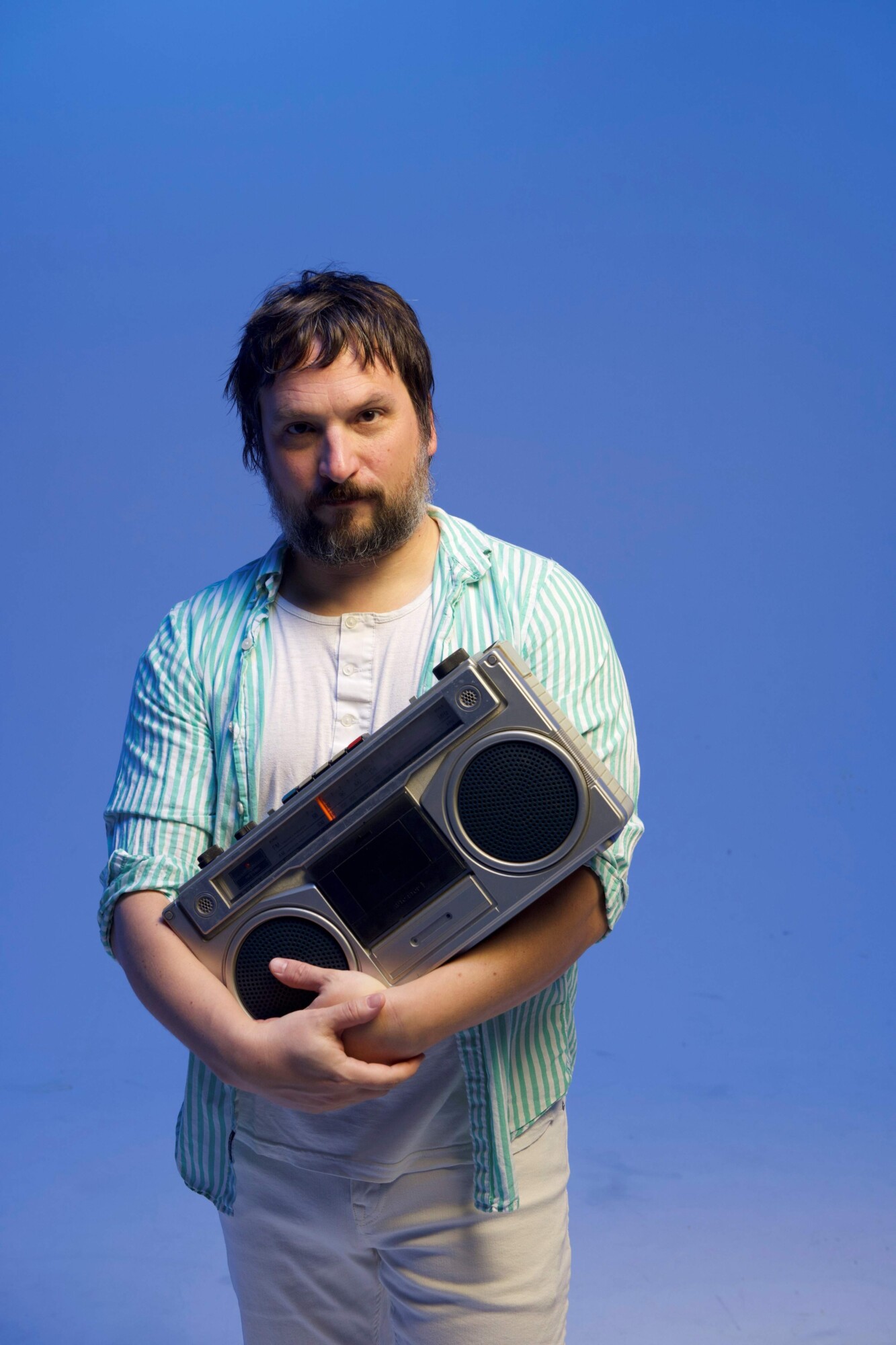
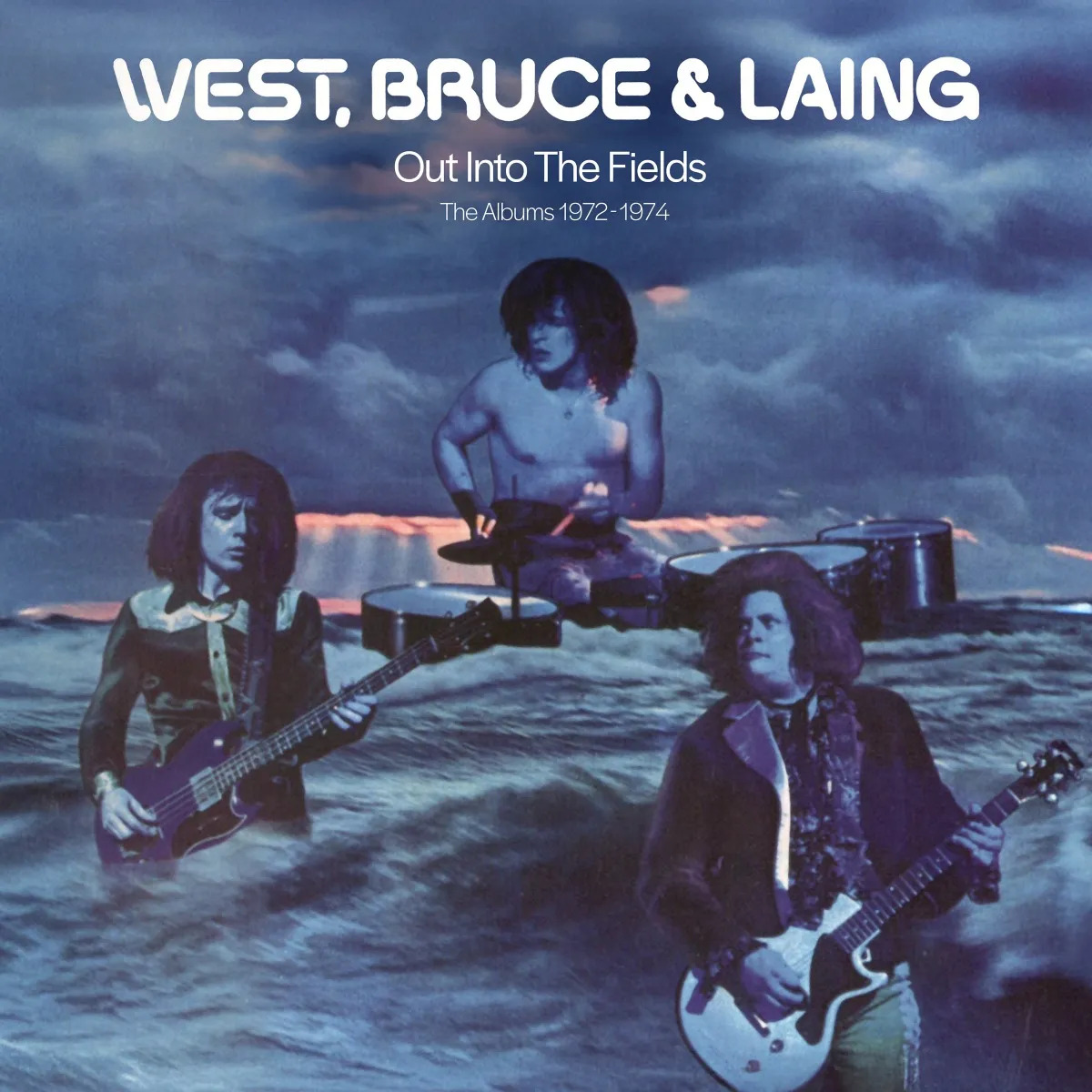
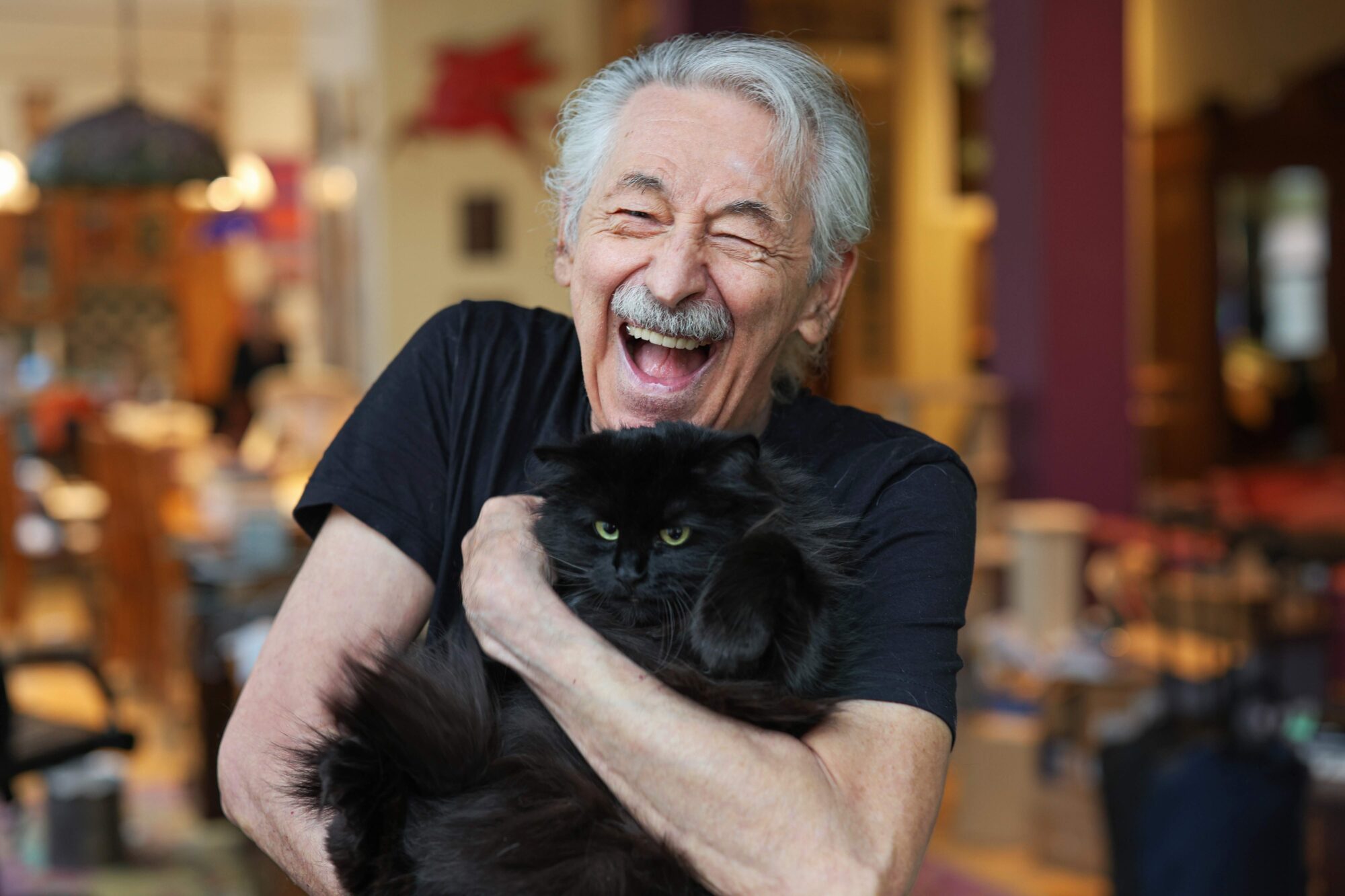
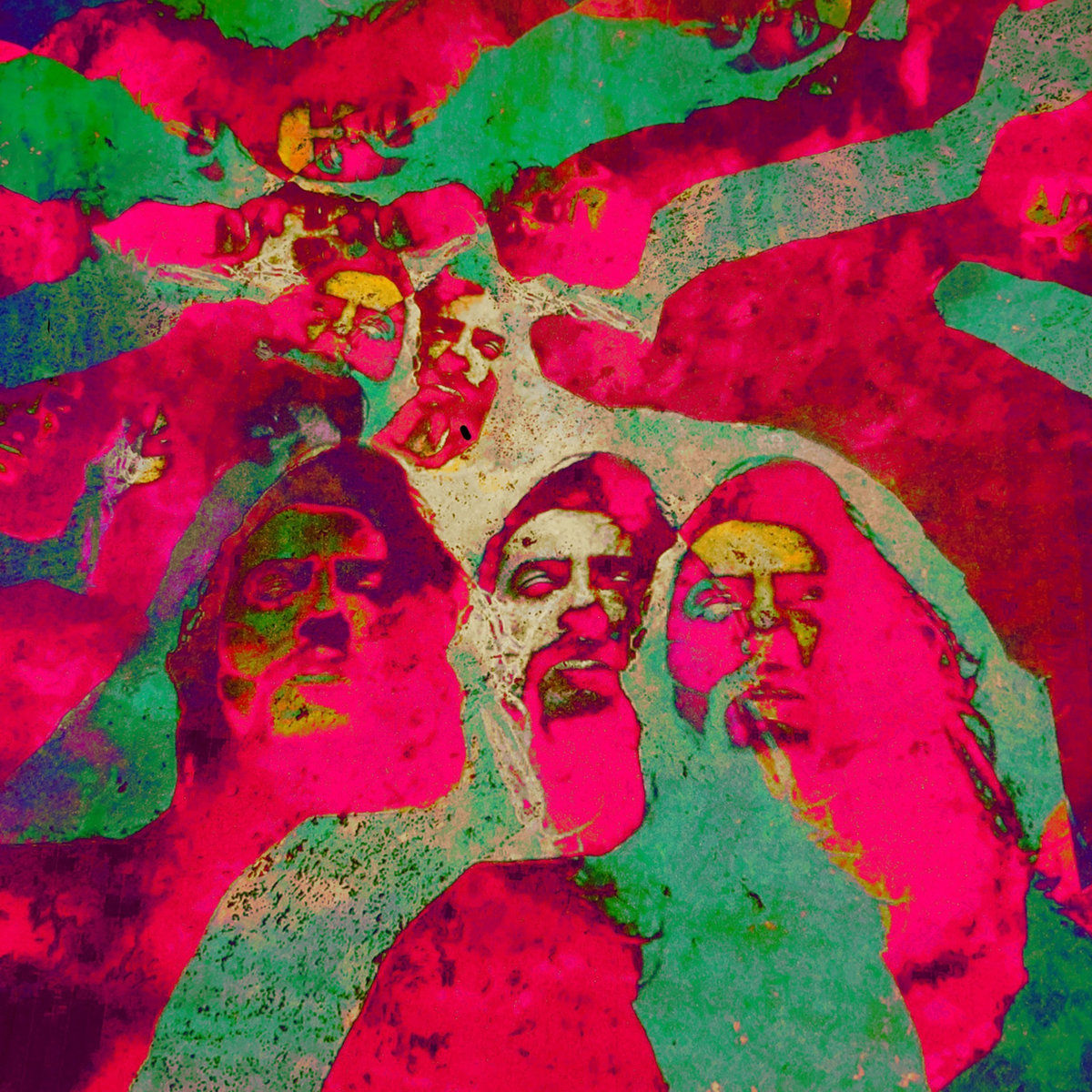
This was an uncommonly good interview. Thank you.